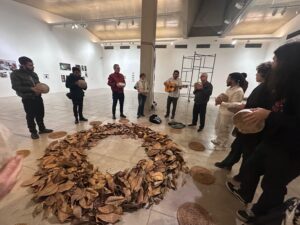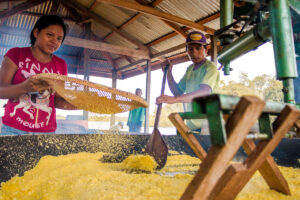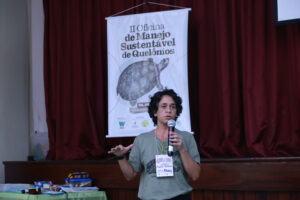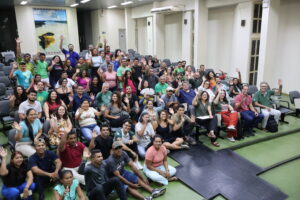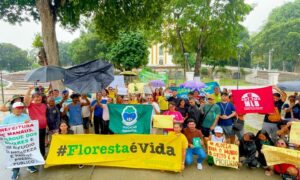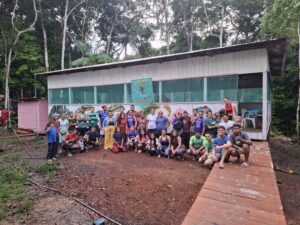Activists from the region’s LGBTQIAPN+ community reflect on the fight for acceptance and the importance of education in valuing sexual and gender diversity
By Julian Santiago* and Lívia Cruz*
Translated by Bruna Favaro
“I grew up in a traditional community where information about sexuality was non-existent. Without understanding the changes in my body, I felt like a mistake, slowly suffocating every day.” (Rodrigo Carmino, resident of the Roque community in Resex Médio Juruá, 27 years old, pedagogy student at UEA – State University of Amazonas).
In June, Pride Month, we celebrate the LGBTQIAPN+ community in Juruá, in the Amazon, Brazil and in the world! Although this month is an opportunity to celebrate the multiplicity of life, the visibility of LBGTQIAPN+ people can’t be restricted to a month: the infinite possibilities of living well and happily are daily tasks.
As an initiative of the Gender and Value Chains research group, an online conversation on this topic took place on June 20th. The discussion was facilitated by Dri Moraes, a trans male person, biologist and artist, who has been working in the Amazon for a few years. The conversation opened up a space for young people from Carauari and Mid-Juruá communities to share their experiences.
After this moment of sharing, we received testimonials from young members of the community, understanding that LGBTQIAPN+ Pride day is more than a day of celebration; It is a day for affirming and reaffirming the identities of millions of people around the world, and in the riverside communities of the Mid-Juruá territory this day is no different.
For Rodrigo Carmino, it is a day to reflect on the struggle of many others who fought so that he could celebrate today. In his statement, he describes the difficulties of dealing alone with his acceptance process, since the existing taboo in riverside communities prevented him from sharing his anxieties with his parents and friends, for fear of negative reactions.
“Being gay in this context was an immense challenge, as I didn’t know how to deal with my parents and faced strong judgment and discrimination from local residents. A whirlwind of emotions kept me constantly on alert, permeated by fear. Even in the face of challenges in a traditional community society governed by patriarchy and heteronormativity that does not always understand or fully accept sexual and gender diversity, I embrace my identity with gratitude and determination.”
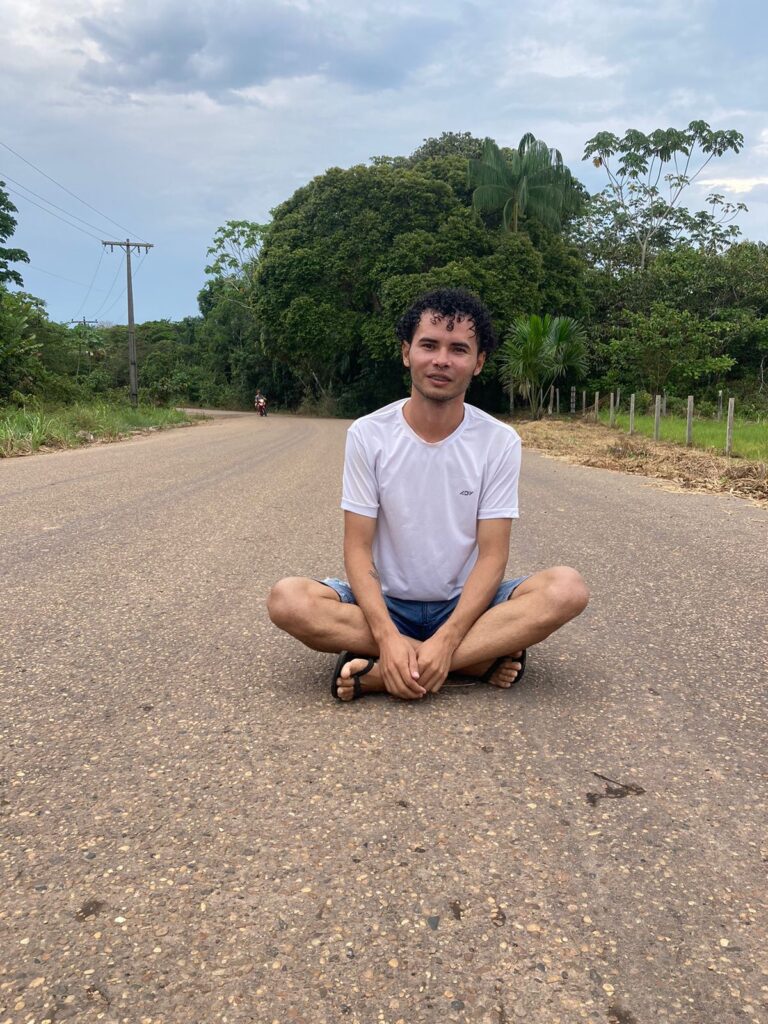

Currently, Rodrigo is a staff at ASPROC and is about to conclude his graduation in the Countryside Pedagogy course, in which, through education, he has directed his efforts to understand the history and strengthen the struggle of the LBGTQIAPN+ community in the Amazon.
“I’m proud to be exactly as I am, this reflects on my authenticity and my ability to truly live. Celebrating my LGBTQIAPN+ identity is also honoring the courage of so many others who fight for acceptance and respect daily. This awareness and pride strengthens me and connects me to a vibrant and resilient community, where I can be completely myself.”, says Rodrigo.
Other young people in the territory share similar experiences. A trajectory of struggle for acceptance and courage to be who you are represents an opening of paths for those who are yet to come. For example, Alice Silva, a 25-year-old bisexual woman who also lives in the Roque community, told us: “I like being who I am. Today I am very resolved about my sexuality. But it was not always so”.
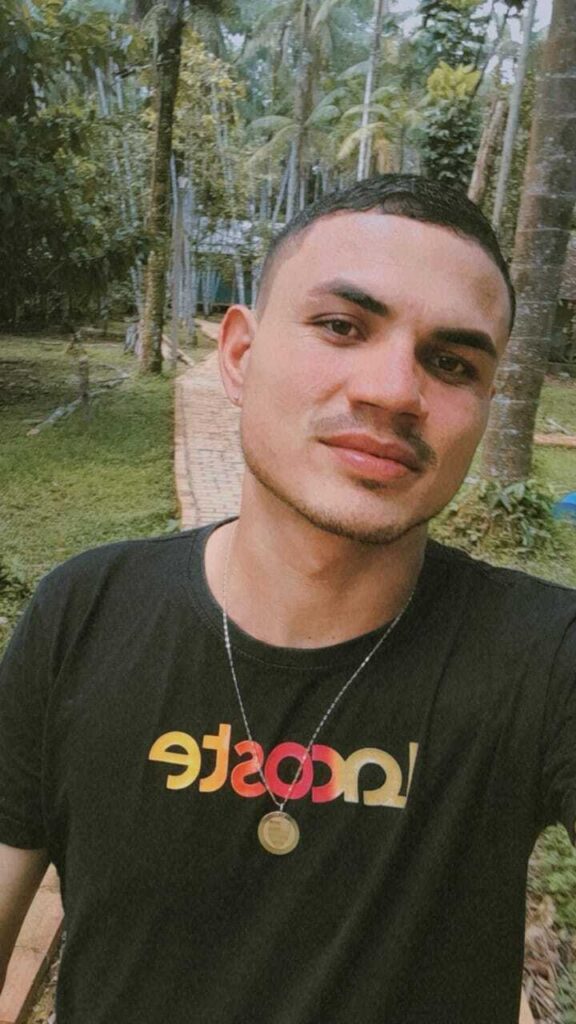
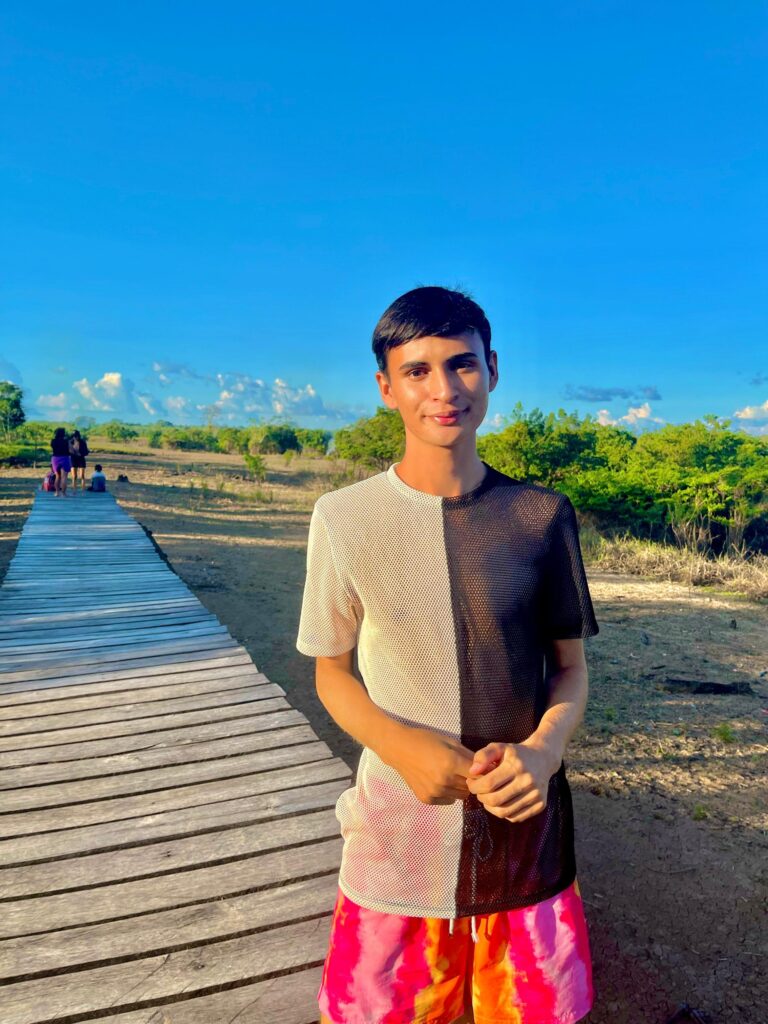
Countryside Pedagogy student, Antonio Carmino, known as Babau, age 26, stated that “By assuming our gay identity, we are reaffirming our humanity and demanding respect for our dignity and rights. It is an act of courage and self-love, which allows us to live fully and authentically, contributing to a more inclusive, fair and welcoming society for all.”
As mentioned by Babau, guaranteeing the freedom to be who you truly are is essential for the construction of fair and inclusive societies. For us, this involves the inclusion of LGBTQIAPN+ voices in decision-making spaces in the territory and listening to and welcoming their perspectives and life experiences.In this sense, Fabrício Carvalho (21 years old), a Tourism Management Technology student who also grew up in the Roque community, reports that: “I realized from an early age that my sexual orientation was different. I faced acceptance challenges due to the appreciation of masculinity in the local culture, despite the joking comments, I managed to find support among my friends and family. I learned to value my identity as part of the rich diversity of the community, despite the difficulties faced due to a lack of general understanding.”
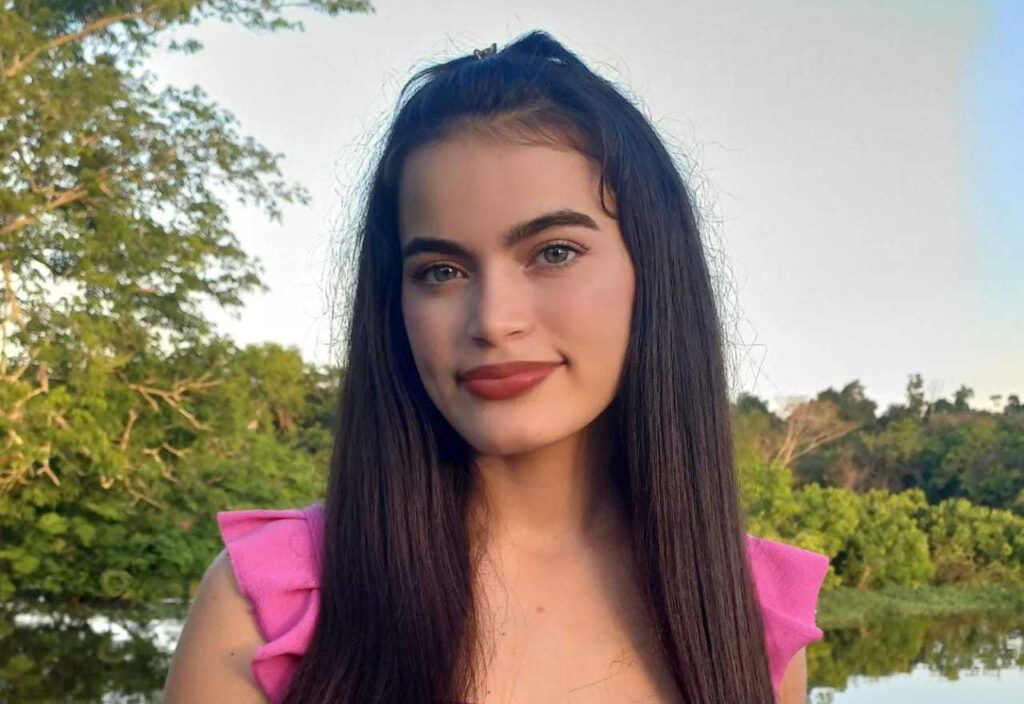
Despite the achievements, the fight for appreciation, respect and listening within the territory is still ongoing. It is necessary to understand that the struggle of the LGBTQIAPN+ population is a struggle for everyone, and this is possible through education and awareness about gender and sexuality issues. An education that respects the diversity of thoughts/feelings and that gives visibility to the different possibilities of interaction with nature and the importance of valuing and listening to this diversity in order to maintain a balance with biocultural diversity.
About the authors:
*Julian is a cis gay man, graduated in civil engineering and law student. He grew up in Carauari, Amazonas. He works as a collaborator with the Médio Juruá Women’s Association and has been a volunteer at Instituto Juruá since 2023.
*Lívia Cruz is a cis pansexual woman. She grew up in the south of Minas Gerais, is a PhD student in Biology and Society, and a collaborating researcher at Instituto Juruá since 2021.

